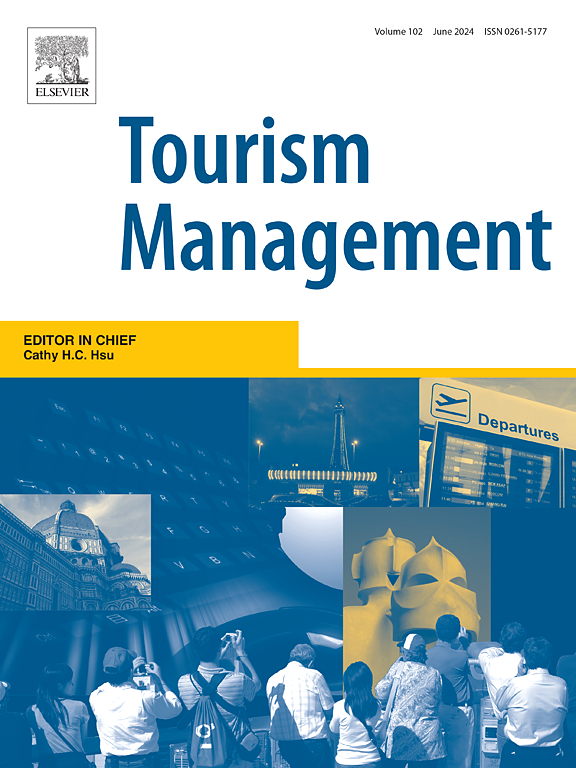释放幸福感:共享住宿顾客积极情绪的影响因素及配置路径
IF 10.9
1区 管理学
Q1 ENVIRONMENTAL STUDIES
引用次数: 0
摘要
尽管积极情绪对共享住宿中的积极客户行为很重要,但目前的研究仍然缺乏对产生积极情绪的复杂过程的充分理解,这使得难以掌握市场动态并进行客户管理。因此,本研究旨在运用扎根理论和模糊集定性比较分析(fsQCA)来探讨顾客积极情绪的前因及其配置路径。结果表明,服务因素、社交因素、信息因素和功能因素、真实性因素和享乐价值因素是影响顾客积极情绪的核心因素,住宿安全和价格价值因素是影响顾客积极情绪的辅助因素。积极情绪的驱动模式为“优质共享服务型”、“主人主导的特色享乐型”和“信息-经验一致性型”。从系统的角度揭示了顾客积极情绪的复杂前因及其协同驱动机制。重要的是,研究结果提供了多样化的策略来维持积极的共享住宿客户关系。本文章由计算机程序翻译,如有差异,请以英文原文为准。
Releasing happiness: Influencing factors and configuration paths of shared accommodation customers’ positive emotions
Despite the importance of positive emotions to positive customer behavior in shared accommodations, current research still lacks an adequate understanding of the complex process involved in generating positive emotions, making it difficult to grasp market dynamics and conduct customer management. Therefore, this study aims to explore antecedents of customers' positive emotions and their configuration paths by conducting grounded theory and fsQCA (fuzzy-set Qualitative Comparative Analysis). The results show that service, social, information, and functional factors, authenticity, and hedonic value are the core factors influencing customers' positive emotions, while accommodation safety and price value are auxiliary factors. Furthermore, three driving models of positive emotions are identified: “high-quality shared service type”, “host-dominated featured hedonic type”, and “information-experience congruence type”. It reveals complex antecedents of customer’ positive emotions and their synergistic driving mechanisms from a systematic perspective. Importantly, the findings provide diversified strategies to maintain positive shared accommodation customer relations.
求助全文
通过发布文献求助,成功后即可免费获取论文全文。
去求助
来源期刊

Tourism Management
Multiple-
CiteScore
24.10
自引率
7.90%
发文量
190
审稿时长
45 days
期刊介绍:
Tourism Management, the preeminent scholarly journal, concentrates on the comprehensive management aspects, encompassing planning and policy, within the realm of travel and tourism. Adopting an interdisciplinary perspective, the journal delves into international, national, and regional tourism, addressing various management challenges. Its content mirrors this integrative approach, featuring primary research articles, progress in tourism research, case studies, research notes, discussions on current issues, and book reviews. Emphasizing scholarly rigor, all published papers are expected to contribute to theoretical and/or methodological advancements while offering specific insights relevant to tourism management and policy.
 求助内容:
求助内容: 应助结果提醒方式:
应助结果提醒方式:


